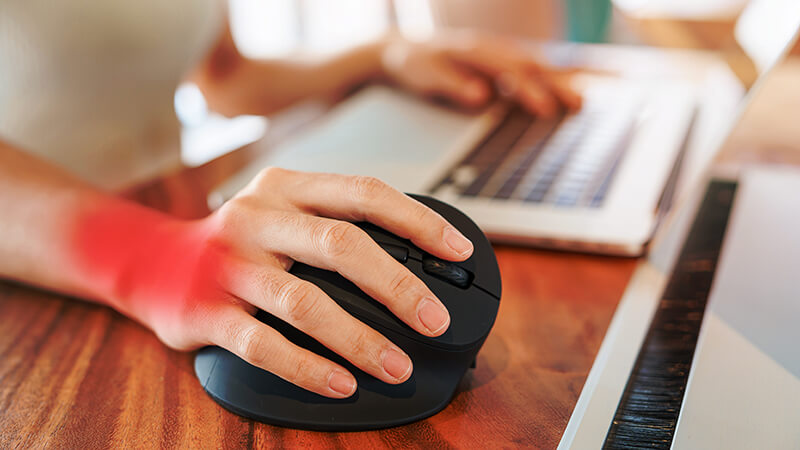What are workplace ergonomics?
While the concept of ergonomics has gone mainstream in the past few years, it’s much more than just a descriptor for supportive office chairs, monitor stands or sculpted keyboards. Ergonomics is an applied science—once centered on studying and creating a process or workspace that makes a job more efficient, comfortable or safe for the people who do it.
And while ergonomics might feel most familiar used in the office space—it got a lot of attention as people created work-from-home set-ups during the pandemic—it’s relevant to nearly every industry.
Poor ergonomics also takes a toll on workers across professions. Whether it’s a nurse maneuvering a patient without help, a plumber straining to access pipes or a poultry processor performing repetitive movements in a cold plant, injuries can and do occur when the job or worksite isn’t set up with ergonomics in mind.
Ergonomics and musculoskeletal disorders
When a job doesn’t fit the worker, musculoskeletal disorders (MSDs)—painful injuries affecting the muscles, ligaments, tendons, blood vessels or nerves—often occur. According to the CDC, musculoskeletal disorders account for nearly 70 million physician office visits each year. Injured workers may miss work, give up favorite sports or hobbies due to pain or push through strain, worsening the damage.
Common MSDs include:
- Carpal tunnel syndrome
- Back injuries
- Arthritis
- Tendinitis
- Elbow or shoulder injuries
- Trigger finger
Like most workplace injuries, however, MSDs are preventable. Understanding the ergonomic risks of a job and taking steps to correct them leads to fewer on-the-job injuries, lower worker fatigue and better productivity.
How employers can create more an ergonomic workplace
Employers have a duty to create and maintain a safe workspace. When it comes to ergonomics, though, it’s more complicated than simply posting signage or distributing protective gear.
According to OSHA, workplaces start by identifying their ergonomic risks. They might commission an ergonomic review, study past injuries and workers’ comp claims and, most importantly, speak to workers themselves.
Problem areas may be physical workspaces or processes. Common trouble spots often involve:
- Repetitive tasks
- Awkward body positions
- Heavy work
- Cold temperatures
- Vibrations
Next, workplaces start making changes: adapting their existing equipment, shaking up their practices or scheduling, and introducing new tools or gear. In a commercial kitchen, this might mean correcting a worktable height for staff stooping during prep. In a factory, it might mean installing diverters so employees have less repetitive work. In a nursing home, it might mean creating a policy that defines safe patient handling and lifting limits.
Like any safety plan, a solid ergonomic process also requires training, management buy-in and the opportunity for workers to weigh in. Understanding the warning signs of MSDs, including pain, fatigue, numbness, stiffness or weakness, can also stop injuries from getting worse.
Are musculoskeletal disorders covered by workers’ comp?
In Georgia, it’s possible to receive compensation for a workplace injury, including injuries that may occur from strain, repetitive movement or other ergonomic issues. However, MSDs are often less clear-cut than other types of on-the-job injuries, like those you’d get from a fall or equipment injury. Sometimes, employers will try to argue that your MSD is preexisting or related to an accident outside of work.
That’s why it’s so important to not push through pain that doesn’t go away, or ignore feelings of weakness or stiffness. Having a clear medical diagnosis will help support your case, and an experienced Atlanta workers’ compensation attorney will have the experience to help you navigate the process.
Talk to an Atlanta workers’ compensation attorney after an MSD
Musculoskeletal disorders often require complex medical treatment and rest, making it important to get the care you need early on. If you’re affected by an MSD, you’ll need a workers’ comp lawyer to help with your case. Contact the Law Offices of Laura Lanzisera today for a free consultation, or give us a call at 404-991-5097.


Leave a Reply
Want to join the discussion?Feel free to contribute!